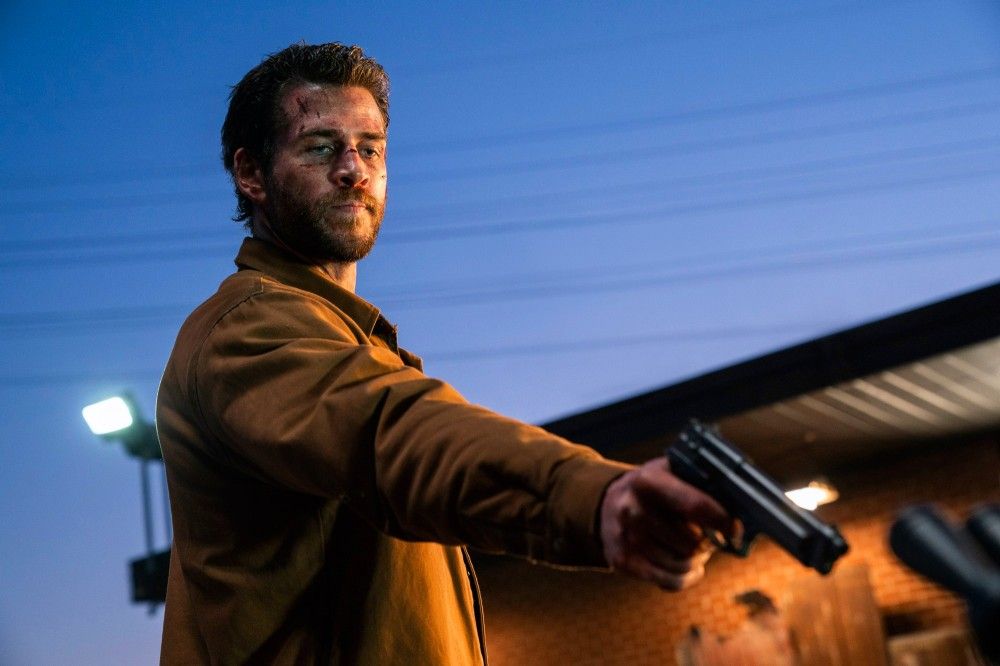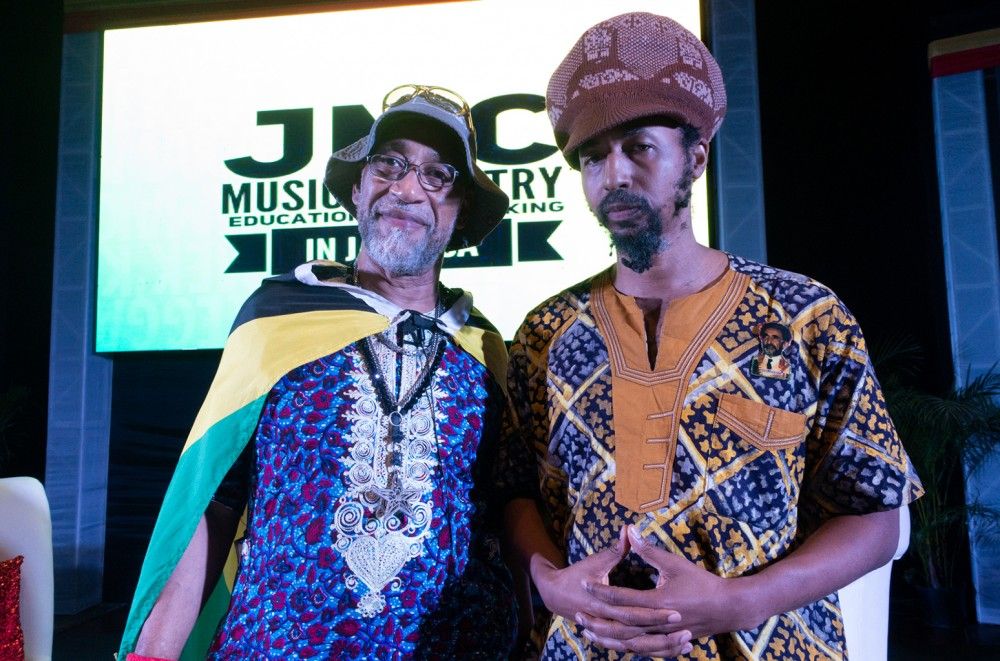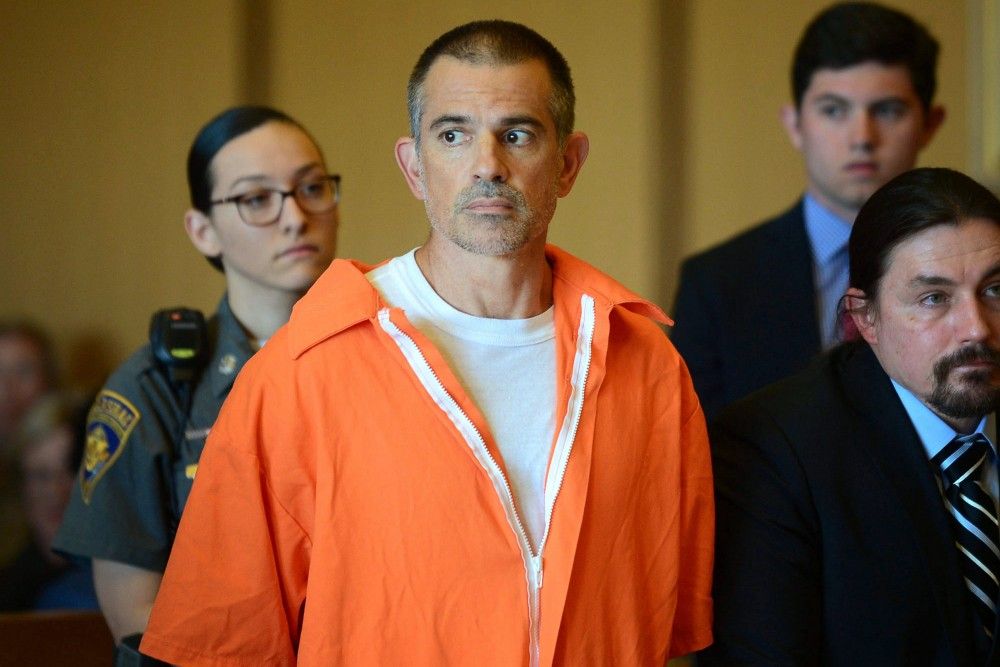
Meet Quibi, the Short-Form Streaming Network No One Needs Right Now
The dustbin of corporate history is littered with product launches that failed due to bad timing — innovations that either came along too soon (the Apple Newton), or alongside a similar one that more successfully captured the public imagination (Betamax losing out to VHS). And, of course, there are plenty of products that just failed because they deserved to.
With today’s launch of Quibi, no one can dispute how awful the timing is. The venture, backed by Jeffrey Katzenberg and Meg Whitman with a reported $1.75 billion war chest, offers video content in intentionally small packages — or, as the name is an abbretion for, “quick bites.” (Well, kind of. It’s pronounced quib-ee, not quib-eye. Don’t ask me, I just work here.) Every show is meant to be watched only on a phone, and all episodes are 10 minutes or less. It’s fast entertainment for when you’re on the go, built to be consumed during a short subway ride or when you have a break between meetings.
Only the service is launching in a world where no one is on the go, commuting to work, going to meetings, or in any way in need of the efficient, portable viewing Quibi was designed to provide. And people quarantined inside their homes for weeks on end are far more apt to consume their entertainment on screens much bigger than their phones. Extremely low on the list of ways COVID-19 has transformed life as we know it is that it has rendered Quibi utterly pointless for the duration of this crisis.
But imagine for a moment — if the current dire state of things allows you to — that life was proceeding more or less as it had prior to this outbreak and social distancing. Imagine that you still had a commute, and in-person meetings, and all the other things that made the Before Time so hectic. Under those circumstances, would Quibi’s smaller-is-better philosophy prove a necessary tonic?
Based on a sampling of shows that are part of today’s launch(*), I’m afraid less would definitely not be more with the majority of Quibi’s offerings, even in a far better climate than the one in which it has the poor fortune to arrive.
(*) As a way to both entice early adopters and ride out the current unfavorable atmosphere, Quibi is offering free 90-day subscriptions to anyone who signs up on their website before April 20th. (Otherwise, the price point is $4.99/month with commercials — an ad load which Quibi says averages out to 2.5 minutes per hour — and $7.99/month for ad-free.) That’s substantially longer than the one-month-free trials that many established streamers have offered during this calamity. If we’re all very lucky, life will have returned to normal-ish conditions before those 90 days are up.
Quibi launches today with two dozen shows. Many of them are high-concept unscripted series, like a revival of Punk’d where Chance the Rapper pranks the likes of Megan Thee Stallion, or Dishmantled, a cooking show hosted by Titus Burgess where chefs attempt to recreate dishes that were fired out of a cannon at them while they were blindfolded. (I swear I am not making this up.) Some are semiscripted, like Nicole Richie’s Nikki Fre$h, a series of comedy sketches where she attempts to reinvent herself as a trap icon specializing in agrarian themes. And there are a handful of straightforward documentaries mixed in with a few scripted series — or, as Quibi has accurately but irritatingly dubbed them, “Movies in Chapters.”

‘Dishmantled’
To the degree that the whole idea of Quibi works, it works best with the reality shows. (Though the show with the most provocative title, Murder House Flip, proves a disappointment where no one is actually trying to sell the murder house in question, but simply looking to tidy it up a little.) Dishmantled, from the creator of Chopped, has juuuust enough material each time to fill six minutes. And the image of the contestants getting assaulted with exploded food, coupled with the horrified reactions of celebrity judges like Dan Levy from Schitt’s Creek, are amusing within this compact package. You can watch that, or the upcoming Elba v Block — where amateur race-car driver (*) competes in challenges with pro Ken Block — and feel like you’ve gotten a complete entertainment experience, with more famous on-camera talent and higher production values than similar things you could watch on YouTube without a subscription fee. But even with the better shows, the line between what Quibi offers and what’s already on other platforms feels awfully thin, and nonexistent once the quality dips even a little. For example, while Richie’s game, self-deprecating attitude is as appealing as usual (and she gets her dad, Lionel, to play himself in one episode), Nikki Fre$h would be a minor entry in the Funny or Die roster of short series.
(*) Elba, thankfully, seems to have recovered from his own bout with COVID-19. Still, it feels sadly appropriate that one of the more high-profile stars of Quibi’s launch month was temporarily felled by the same pandemic that’s undermining the service’s entire business model.
Funny or Die actually produces one of the initial scripted offerings, Flipped, starring Kaitlin Olson and Will Forte as a delusional married couple going to extremes to produce their audition video to get a home renovation show. Rounding out the quartet of scripted shows available today: a remake of The Most Dangerous Game, with being hunted through Detroit by a consortium of rich men led by Christoph Waltz; Survive, a plane crash thriller starring from Game of Thrones; and When the Streetlights Go On, a teen drama about a suburban murder in 1995.
The big technological innovation for Quibi, used for all their shows regardless of genre, is that you can watch with your phone held horizontally or vertically, and the image will still fill your screen. This relieves people of the slightly awkward burden of holding their phone horizontally while riding the bus — or, it would, if riding the bus was still an option for most of us — while presenting a picture that’s theoretically optimized for the long phone screen. No black bars on the top and bottom — mostly, anyway.
In practice, though, the vertical videos look exactly how you would expect them to: like someone went into the original horizontal frame that the director had in mind, and cropped out everything but the most important character in the shot. (If you’re old enough to remember the days before widescreen TV sets, it looks like the pan-and-scan images you would get when a movie arrived on home video.) It’s a nightmare for compositions, and at times, the vertical image has to turn into two square images stacked on top of one another to convey all the necessary information. Occasionally, you’ll even get a vertically letterboxed picture, just so there’s room for chyrons explaining the time or place of a scene in a way that fit more seamlessly into the horizontal version. In almost every instance, the horizontal picture is clearly the better way to watch these things(*), even if the phone won’t fit quite as naturally in your hand that way.
(*) Oddly, there’s at least one moment (in the first episode of Survive) where the vertical image contains more info — and a minor plot point that horizontal viewers will have to guess at. The vertical image also tends to be slightly better for close-ups.
Maybe down the road, someone will figure out how to use this technology to rethink how filmed images can be framed to convey the same concepts no matter how your phone is rotated. Now, though, they’re just chopping up what already exists in a slightly new and inferior way.

Sophie Turner in ‘Survive’
Which is roughly how the whole Movies In Chapters concept works, unfortunately. This is literally how the scripted shows are constructed, as if someone just made a mid-budget film, then put in a hard cut each time a scene ended somewhere in the seven- to 10-minute range. There’s little apparent thought given to the story being told in each individual episode, and it can feel like an accident when one of them ends with some kind of cliffhanger or a clear narrative beat.
That kind of shapelessness was already a problem in the streaming world, where too many creators think of their shows as “a 10-hour movie,” and don’t seem to understand the distinctions in form between film and television, and the respective strengths and weaknesses of each medium. Think about all those Netflix dramas you watch where nothing seems to happen forever. Making each episode fun-sized only creates new problems. Characters and story points feel underdeveloped, because we get so little time with them. (Flipped doesn’t suffer from this, but only because Olson and Forte’s onscreen personalities are already so well established that the casting does most of the heavy lifting.)
And cutting these feature film ideas into small portions can create whiplash depending on the rate at which you watch. (New episodes are released daily until each story concludes.) The first episode of Survive, for instance, has to establish who Turner’s character is before she gets on the plane, but in the process feels like the premiere of an entirely different series than what it soon becomes. Turner’s good in a very un-Sansa-like role, but if this were presented as a full movie, odds are it would be introduced on one of the established streamers on a Friday and forgotten by the following Tuesday. (When the Streetlights Go On would be lucky to conversationally make it to Friday afternoon.)
Quibi only provided critics with three installments of most of their first round of shows. All I’ve seen of Most Dangerous Game, for instance, is the Hemsworth character’s backstory and Waltz explaining how the hunt works. It’s possible that any or all of these will feel more satisfying after all the bites have been consumed. Though the first few postcrash scenes in Survive illustrate a problem that Most Dangerous Game and other Quibi thrillers will have to grapple with: No matter how closely you hold the device to your face, you’re still watching on a phone, and action and carnage simply look less impressive on a screen that size.
But the whole notion of Movies in Chapters is a reminder that more than 100 years worth of films already exist which can also be watched a bite at a time if necessary. A whole lot of them are of a much higher quality than this small sample suggests, and can be watched on a big screen just as easily as on one you can fit into your palm. Quibi has projects coming down the road produced by notable filmmakers like Steven Spielberg, Sam Raimi, and Guillermo Del Toro, and maybe they’ll do a better job of figuring out how to take advantage of the company’s formula. Though most of Quibi’s public rhetoric suggests the company is much less interested in reinventing the wheel than making a smaller one. And maybe I’d just rather queue up Lincoln or Spider-Man 2, even if I know I won’t be able to view them all in one sitting.
SnapChat has been making its own mobile-optimized scripted originals for a while now. None of the ones I’ve seen (including zombie thriller Dead of Night and college comedy CoEd) are great, but they’ve at least thought through what’s different about the experience of watching something on your phone. So Dead of Night is told as a series of texts, FaceTime conversations, videos, etc., as seen on the phone of our POV character, while a lot of CoEd unfolds as the main characters communicate on FaceTime. These are new approaches to what could be an entirely different medium, where the Quibi scripted shows are smaller, shorter, inferior versions of pre-existing things that play just fine on a handheld device.
In such a crowded TV marketplace, the most important question a streamer has to answer is “Why do you exist?” What does any newcomer have to offer that someone can’t already get from Netflix, Hulu, Amazon, Disney+, Apple TV+, CBS All Access, or the cable-less incarnations of HBO, Showtime, and Starz? Or, for that matter, YouTube? Quibi’s answer involved convenience in a version of modern life that has been placed on indefinite hold, and with shows that are only sometimes built to properly exploit its relatively unique properties.
So no, the timing couldn’t possibly be worse for Quibi to introduce itself to the world today. But even under blessedly normal circumstances, this food is undercooked, no matter how small the portions.



